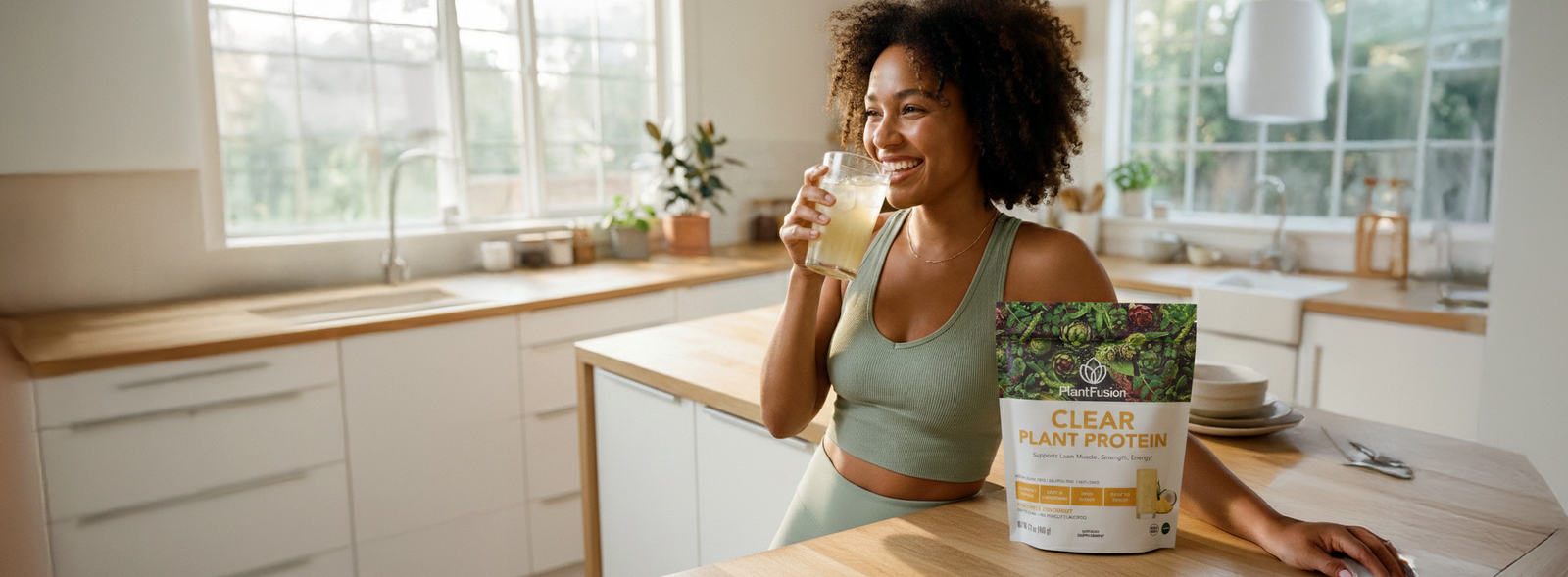Can you build muscle on a plant-based diet? It’s a question that sparks curiosity and skepticism alike. The idea of plant-based protein fueling strength and power might challenge long-standing beliefs about animal protein being the gold standard for muscle growth. However, research and real-world success stories tell a different story—one where plant-powered gains are not just possible but thriving.
Building Muscle with Plant-Based Protein
According to a study published in Sports Medicine, a diet that is high in protein and exclusively plant-based supports muscle strength and mass gains just as well as one that includes animal protein. In the study, researchers had 38 men, with an average age of 26, start a 12-week leg-focused resistance training program. Half of the men in the group were longtime vegans, and half were longtime omnivores. They all maintained their usual diet and added a protein supplement (soy for the vegans and whey for the omnivores).
At the end of three months, both groups showed significant increases in leg lean mass and hypertrophy (the increase and growth of muscle cells), and both groups improved the amount of weight they could push on the leg press. The researchers concluded that as long as you’re getting the amount of protein you need, the source isn’t as important – although there are some key benefits to choosing plant-based proteins over animal proteins.
Current research suggests that most athletes require between 1.2-2.0 g/kg of protein (per kg of body weight per day), with endurance athletes on the lower end of the spectrum and bodybuilders on the upper end. (Professional bodybuilders or powerlifters might even aim for as much as 2.2 g/kg.) Whether the source is animal or plant-based, it is common for athletes who consume this much protein to add a protein powder to their diet some days to get the amount of protein they need.
In general, plant-based foods contain fewer calories than animal-based foods. This allows us to eat more food and feel fuller without necessarily gaining more body fat. For people on a plant-based diet whose goal is to gain muscle and strength, however, they need to focus on foods that have higher caloric density. (So not just celery, lettuce, grapes, etc.) Grains, beans, tofu, nuts and nut butters, plant-based meat alternatives, seeds, and avocados are good sources of protein-rich, nutritionally dense foods. The important thing is to get enough complete protein!
PlantFusion's Complete Protein
21g of the world’s best tasting plant-based, vegan protein powder that sustains energy, builds and repairs muscle, and is easy to digest.
How Plant-Based Protein Assists in Muscle Growth
In addition to getting enough protein when looking to build muscle, it is also important to focus on the types of amino acids being consumed. We've previously talked about protein combining, which is why not every meal needs to contain all nine of the essential amino acids. But when it comes to building muscle, some specific amino acids play a very important role.
You have probably heard of BCAAs, or "Branched Chain Amino Acids". BCAAs are the three essential amino acids leucine, isoleucine, and valine. These three amino acids are grouped because they are the only ones to have a chain that branches off to one side. Unlike the other six amino acids, BCAAs are mostly broken down in the muscle, rather than in the liver. Our bodies can use them as building blocks for protein and muscle building, and research has shown them to help increase the rate of protein building and decrease the rate of protein degradation in resting human muscle.
In addition to providing protein and amino acids, plant-based protein sources are full of many other important nutrients that help with muscle building, such as healthy fats, fiber, vitamins and minerals, and antioxidants. These added nutrients help to increase energy and blood flow, which helps us to push through tough workouts and provide our muscles with more oxygen. They also aid in reducing inflammation, which can shorten recovery time between workouts and help minimize muscle soreness. And believe it or not, plant-based proteins have also been shown to increase muscle efficiency. (One study looking at the effect of consuming a nitrate-rich plant-based supplement allowed subjects to bench press 19% more total weight.)
PlantFusion's Complete Meal
A fusion of plant-based proteins + key essentials for a completely nourishing vegan meal replacement shake.
The Bottom Line
Building muscle and increasing strength on a plant-based diet comes down to three simple things:
- Consuming enough protein.
- Combining the protein sources to ensure you are getting all nine essential amino acids.
- Making sure you get enough of the three branched chain amino acids (BCAAs) - especially leucine.
The belief that only animal protein can help us build muscle has become an outdated one, and even the most dedicated athletes are now embracing the benefits of a plant-based diet.
And remember - Protein powders are a great way to make sure you are getting enough protein, especially when consuming an exclusively plant-based diet. Check out our selection of plant-based, vegan products to help supplement your own protein intake!















